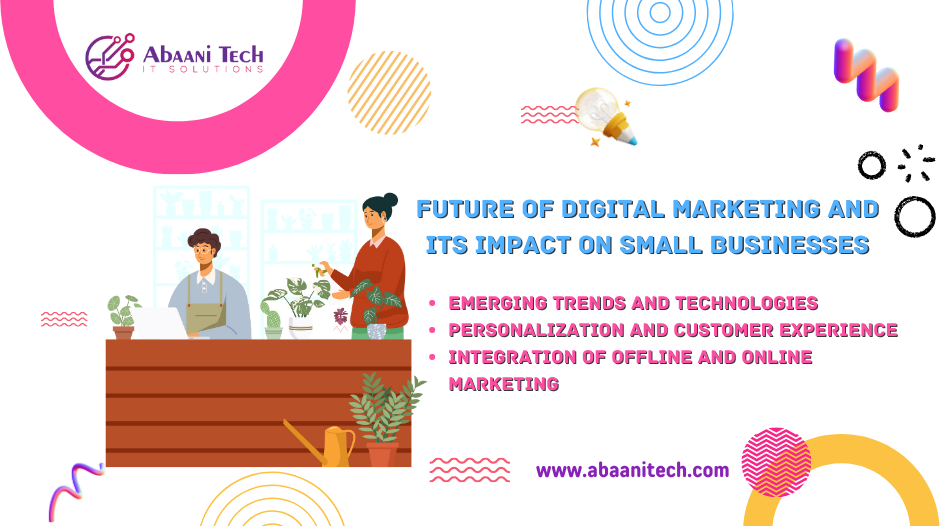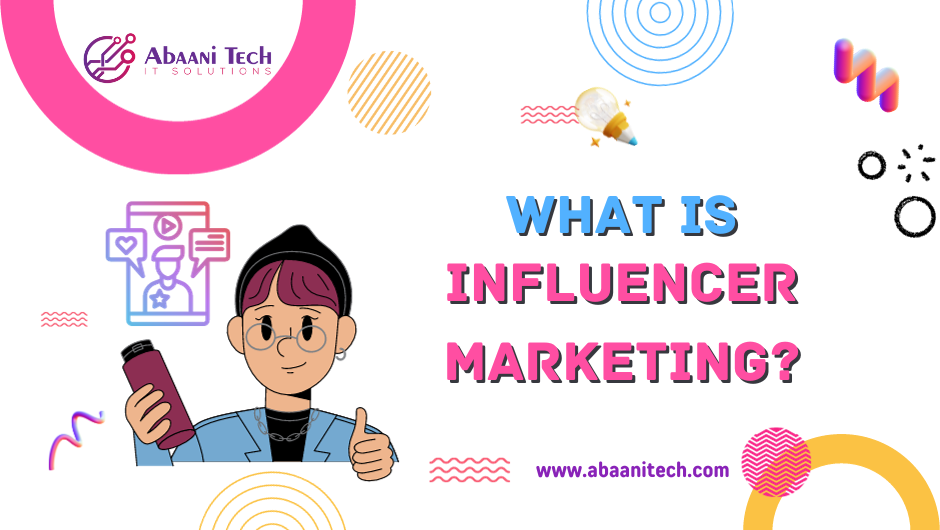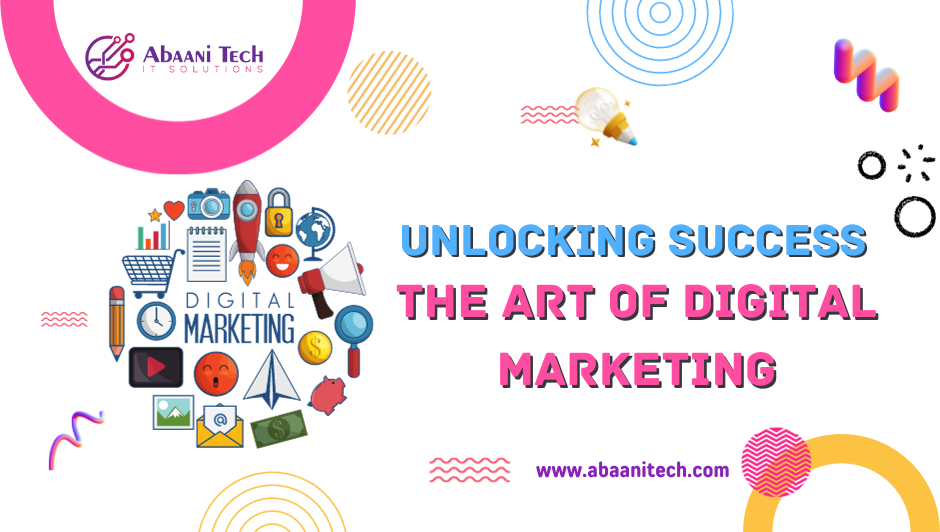Impact of Digital Marketing on Small Businesses


In today’s fast-paced and highly competitive business landscape, digital marketing has emerged as a game-changer for small businesses. The advent of the internet and the rapid adoption of digital technologies have revolutionized the way businesses operate, connect with customers, and promote their products or services.
Digital marketing encompasses a wide range of online strategies aimed at attracting, engaging, and converting potential customers into loyal patrons. For small businesses, harnessing the power of digital marketing is no longer an option but a necessity to survive and thrive in a digital-first world.
Let’s delve into the reasons why small businesses are increasingly turning to digital marketing and how it has become a key differentiator in their success.
- What is Digital Marketing?
- Growing Importance of Digital Marketing for Small Businesses
- Benefits of Digital Marketing for Small Businesses
- Common Digital Marketing Strategies for Small Businesses
- Challenges and Solutions in Digital Marketing for Small Businesses
- Case Studies of Successful Small Businesses Leveraging Digital Marketing
- Future of Digital Marketing and Its Impact on Small Businesses
- Conclusion
- FAQs (Frequently Asked Questions)
What is Digital Marketing?
Digital marketing refers to the use of various online channels and platforms to promote products, services, or brands. It involves leveraging the internet, search engines, social media, email, and other digital mediums to reach and connect with target audiences.
Unlike traditional marketing, digital marketing offers precise targeting, measurable results, and the ability to adapt and optimize campaigns in real-time.
Growing Importance of Digital Marketing for Small Businesses
In the past, small businesses relied on conventional advertising methods, such as print media and local billboards, to reach their audience. However, the digital revolution has shifted consumer behavior, with people spending more time online, especially on social media platforms and search engines. This shift in consumer behavior has compelled small businesses to embrace digital marketing as a means to engage with their audience effectively.
Benefits of Digital Marketing for Small Businesses


1. Increased Online Visibility and Reach
Digital marketing allows small businesses to establish a robust online presence, making it easier for potential customers to find them. With the right SEO strategies and content marketing efforts, small businesses can rank higher on search engine results pages (SERPs), ensuring increased visibility and organic traffic.
2. Cost-Effectiveness and Better ROI
Compared to traditional marketing methods, digital marketing offers a more cost-effective way for small businesses to reach their target audience. Online advertising, such as PPC campaigns, allows businesses to set budgets based on their affordability. Additionally, digital marketing provides better ROI as it targets the right audience, leading to higher conversion rates.
3. Targeted Marketing and Audience Segmentation
One of the significant advantages of digital marketing is the ability to target specific demographics and audiences. Platforms like social media and online advertising tools offer advanced audience segmentation, ensuring that small businesses marketing efforts reach the most relevant prospects.
4. Data-Driven Decision Making
Digital marketing provides valuable data and insights into consumer behavior, campaign performance, and audience engagement. Small businesses can use this data to make informed decisions, optimize their marketing strategies, and tailor their offerings to suit customer preferences.
5. Improved Customer Engagement
Interacting with customers is crucial for building brand loyalty and long-term relationships. Through social media, email marketing, and other digital channels, small businesses can engage with their customers in real-time, addressing their queries and concerns promptly.
Common Digital Marketing Strategies for Small Businesses


To leverage the benefits of digital marketing fully, small businesses must employ effective strategies tailored to their unique needs and target audience.
Here are some common digital marketing strategies that have proven successful for small businesses:
1. Search Engine Optimization (SEO)
SEO involves optimizing a business’s website to rank higher in search engine results. By using relevant keywords, creating high-quality content, and building backlinks, small businesses can improve their website’s visibility and attract organic traffic.
2. Pay-Per-Click (PPC) Advertising
PPC advertising allows businesses to display ads on various platforms and pay only when users click on their ads. This targeted approach ensures that businesses reach potential customers with a higher likelihood of conversion.
3. Social Media Marketing
Social media platforms provide an excellent avenue for small businesses to connect with their audience, build brand awareness, and foster customer loyalty. Engaging content, regular updates, and interactive campaigns can help businesses build a loyal following on social media.
4. Content Marketing
Content marketing involves creating and distributing valuable, relevant, and consistent content to attract and engage a target audience. Blogs, videos, infographics, and eBooks are some content formats that can showcase a business’s expertise and build trust with customers.
5. Email Marketing
Email marketing remains an effective way to nurture leads, communicate with customers, and drive sales. Small businesses can create personalized email campaigns to deliver targeted messages and exclusive offers to their subscribers.
Challenges and Solutions in Digital Marketing for Small Businesses


While digital marketing offers numerous benefits, small businesses may encounter challenges when implementing their strategies. Here are some common challenges and solutions:
Budget Constraints
Limited budgets can restrict the extent of a small business’s digital marketing efforts. However, prioritizing key strategies with high ROI potential can help make the most of available resources.
Technical Know-How
Small businesses may lack the in-house expertise required for effective digital marketing. Outsourcing to digital marketing agencies or investing in staff training can address this challenge.
Competition and Standing Out
The online marketplace can be highly competitive, making it challenging for small businesses to stand out. A focus on unique selling propositions and innovative marketing campaigns can set them apart from the competition.
Building a Strong Online Reputation
Building trust in a digital environment is crucial for small businesses. Regularly engaging with customers, providing excellent customer service, and showcasing positive reviews and testimonials can enhance a business’s online reputation.
Case Studies of Successful Small Businesses Leveraging Digital Marketing
This section includes real-life examples of small businesses that have successfully used digital marketing strategies:
Company A: How SEO Helped Increase Local Foot Traffic
We present a case study of a local bakery (Company A) that implemented an SEO strategy to target local customers. By optimizing their website with location-specific keywords and creating informative blog posts, they experienced a significant increase in foot traffic to their store.
Company B: Leveraging Social Media to Boost Sales
This case study features Company B, which successfully used social media marketing to connect with its audience and increase sales through engaging content and interactive campaigns.
Company C: Engaging Content Marketing that Built Customer Loyalty
In this case study, we showcase Company C, which built customer loyalty through content marketing efforts. They created valuable and relevant content that resonated with their audience, leading to increased customer engagement and loyalty.
Future of Digital Marketing and Its Impact on Small Businesses


The future of digital marketing is incredibly promising, and this section explores the exciting developments that lie ahead and their potential impact on small businesses. As technology continues to evolve rapidly, digital marketing will undoubtedly shape the way businesses interact with their audiences, create personalized experiences, and build lasting relationships.
This section looks ahead to the future of digital marketing and how it will continue to impact small businesses:
1. Emerging Trends and Technologies
Digital marketing is continually evolving, and several emerging trends and technologies are poised to revolutionize the marketing landscape. We discuss upcoming trends and technologies in digital marketing and how they will shape the marketing landscape. Some of the most significant trends include:
- Artificial Intelligence (AI)
- Voice Search Optimization:
- Augmented Reality (AR) and Virtual Reality (VR)
- Blockchain Technology
- Social Commerce
- Video Marketing
2. Personalization and Customer Experience
In the future, personalization will become even more critical in digital marketing strategies. Customers expect personalized experiences tailored to their preferences, needs, and behaviors. By leveraging data and insights, businesses can deliver targeted content, product recommendations, and offers that resonate with individual customers.
Personalization enhances the customer experience by making interactions more relevant and meaningful. When small businesses cater to their customers’ specific interests and pain points, they build stronger connections and foster loyalty. Through personalized marketing campaigns, businesses can nurture long-term relationships and turn one-time buyers into brand advocates.
3. Integration of Offline and Online Marketing
As the digital landscape evolves, the lines between offline and online marketing are blurring. Small businesses need to adopt an integrated approach that seamlessly connects both realms. Integrating offline and online marketing efforts ensures consistency in messaging and branding across all touchpoints.
For example, a small retail store can use digital marketing strategies to drive foot traffic to its physical location. This integration could involve using geotargeted ads, social media promotions, and email campaigns to attract local customers. Conversely, customers who visit the store can be encouraged to join the brand’s online community through loyalty programs or social media engagement.
By merging offline and online marketing efforts, small businesses can create a holistic customer journey that bridges the gap between the digital and physical worlds. This cohesive approach enhances the overall customer experience and reinforces brand identity, leading to increased customer trust and loyalty.
Conclusion
Now that we have explored the profound impact of digital marketing on small businesses, it is evident that embracing digital strategies is no longer optional but a crucial step towards success in today’s dynamic marketplace. Small businesses that effectively harness the power of digital marketing can gain a competitive edge, reach a broader audience, and achieve sustainable growth.
To thrive in this digital era, small businesses must focus on delivering exceptional customer experiences both online and offline. The integration of offline and online marketing efforts will create cohesive and seamless interactions with customers, fostering stronger brand loyalty and advocacy.
In conclusion, the impact of digital marketing on small businesses cannot be overstated. It has revolutionized the way businesses operate, engage with customers, and grow. Embracing digital marketing strategies, such as SEO, PPC advertising, social media marketing, content marketing, and email marketing, can open up a world of opportunities for small businesses to succeed in the digital-first landscape.
So, to all aspiring entrepreneurs and small business owners, seize the potential of digital marketing and embark on a journey of growth and success. Remember that the key lies in understanding your target audience, staying agile in adapting to digital trends, and consistently providing value to your customers.
FAQs (Frequently Asked Questions)
Q1: Is digital marketing suitable for all types of small businesses?
Ans: Yes, digital marketing can benefit a wide range of small businesses, regardless of their industry or niche. It offers versatile strategies that can be tailored to meet specific business goals and target audiences.
Q2: How long does it take to see results from digital marketing efforts?
Ans: The timeline for seeing results may vary based on the chosen digital marketing strategies, competition, and other factors. Some strategies, like PPC advertising, can yield immediate results, while SEO and content marketing may take a few months to show a significant impact.
Q3: What should small businesses consider when creating a digital marketing budget?
Ans: When creating a digital marketing budget, small businesses should consider their specific goals, target audience, and the expected return on investment. It is essential to allocate funds strategically across different digital channels based on their potential impact.
Q4: How can small businesses leverage social media marketing effectively?
Ans: To leverage social media effectively, small businesses should identify the platforms where their target audience is most active and create engaging content that resonates with them. Consistency, authenticity, and responsiveness are key to building a strong social media presence.
Q5: Can small businesses handle digital marketing in-house or should they seek professional help?
Ans: While some small businesses may have the resources and expertise to handle certain aspects of digital marketing in-house, seeking professional help from digital marketing agencies or consultants can provide valuable insights and optimize results.






